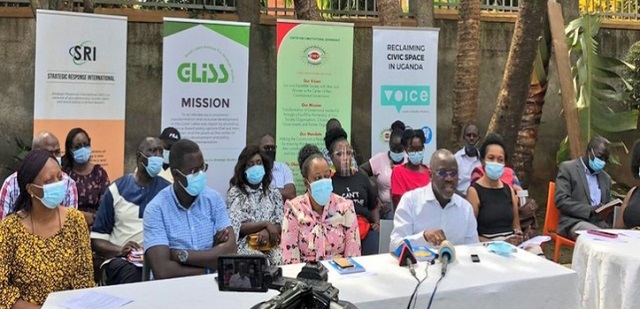
The Colonial Legacy of Uganda’s Civil Society: How western human rights discourse undermines authentic African struggles by curtailing domestic civil society
COMMENT | NNANDA KIZITO SSERUWAGI | Uganda’s civil society, in general, and human rights organizations, in particular, are often hostage to the folly of oversimplifying complex issues to achieve quick, actionable outcomes in their work. Since their accountability mechanism is based on implementing programs, they tend to be programmatic at the expense of being analytical. Ticking lists of program objectives compensates for and compromises their ability for serious analysis.
Whereas they usually seem focused on realising social and political goals to benefit society, their tendency is rather to undermine, misunderstand, and perpetuate structural, systematic, and historical underlying factors causing Uganda’s socio-economic and political challenges. When they note governance crises, which are ubiquitous in our country, they are immediate in prescription but slow at reflection. They never inquire into the “why” and “how” of politics and political phenomena. Their key performance indicators are performative. This is the harsh reality about hashtag activism.
Africa’s historical realities, including the legacy of colonialism, the social and cultural norms and attitudes about governance, and the multiple systemic post-colonial challenges, all disappear under the radar of Western universalist principles in which their human rights ideology is anchored. It is an ideology rich in misplaced analogies but poor in historicity. Even my attempt to explain the inappropriateness of human rights analogies risks being condemned as a justification of human rights abuses.
In their adversarial posture against the state, civil society organizations mimic the functionality of their Western cousins, standing as the agents of Uganda’s democratization. A more reflective observation of activists’ interventions in the country’s politics would, however, expose them not only as positively failing but also as negatively preventing the political changes they so much demand from happening. One may sometimes risk thinking that this is intentional, since the realization of their proclamations would effectively push them out of the lucrative business that is human rights activism.
Emerging from Europe, the idea of civil society was persuasive, built on the notion that in order to delegitimize armed struggle as a means of moderating or capturing state power, let us adopt and center the civic struggle, which would be characterized by a self-limiting power.
To understand the kind of civil society we have, we need to deconstruct it from the coatings of agendas stated on the websites of organizations to the bare bones that expose its origins. When we observe the flow of history, we can identify disparate moments that define the relationship between civil society and the state.
In Africa, civil society was born out of colonial policy, and the original civil society was racist, comprising members of the colonial administration. Since Africans were subjects of colonialism, it was the citizens, i.e., European colonizers, who enjoyed the rights of civil society. Subjects, i.e., Africans, did not enjoy civil and political rights. Africans were governed under a regime of extrajudicial coercion rather than the rule of law.
Indeed, a major part of the nationalist struggle against colonialism was a struggle to deracialize civil society. But since it was reasonably impossible to have a deracialized civil society in a racialized state, the general struggle to indigenize civil society comprised the struggle to indigenize the state, i.e., get independence. Whereas Africa’s independence mainly ushered in a deracialized state, it did not sufficiently indigenize the historical privileges inherent in civil society.
The language spoken in Uganda’s civil society and human rights spaces today is a language inherited from the recession of colonial racial privileges into civil society, where individual rights and institutional autonomy were premised. No wonder there has persisted a language barrier between Africans, who are historical victims of colonial racism, and the vocabulary of rights spoken in civil society and the human rights language. The authentic African struggle speaks the language of social justice and nationalism, not human rights.
The human rights and civil society organizations we have today are actually agents of demobilizing authentic, indigenous social movements. This explains why Western donors and funders remain the top actors in our civil society activities, dictating the programs and expenditures of local organizations. Racism still curtails the agency and functionality of domestic civil society.
The origin and structure of the civil society and human rights movement in Uganda and Africa in general, as described above, is not democratic. How do our award-winning activists who champion these movements hope they can push for the democratization of Uganda’s political space when their own space remains racist and undemocratic? Uganda’s human rights space remains hostage to Western epistemological categorizations of Africa as permanently incapable of self-government and needing constant oversight and intervention. Our great activists need to interrogate and change their political discourse before they can even start to dream of positively contributing to the political discourse of the country.
*****
 The writer is a Ugandan | Snnanda98@gmail.com
The writer is a Ugandan | Snnanda98@gmail.com
 The Independent Uganda: You get the Truth we Pay the Price
The Independent Uganda: You get the Truth we Pay the Price



